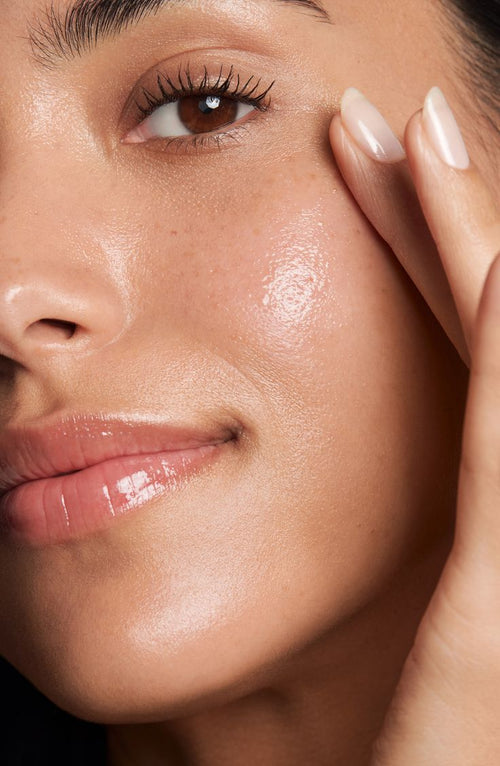
Vitamin C Serums 101 - How to Fade Dark Spots and Boost Radiance
Share
Do you wake up every morning, look in the mirror, and get frustrated? Do you always notice some stubborn dark spots that do not fade? Have you tried all sorts of remedies? Do you feel like your skin has lost its natural glow? Ugh, it's a nightmare for all females, no matter what age group they belong to.
Dark spots and uneven skin tone are not rare. In fact, it is one of the most common skincare issues that people take to dermatologists. Fortunately, dermatologists have found the solution for you. It is not a complicated treatment or a combination of numerous ingredients. This is one skincare ingredient that will fix a plethora of issues - Vitamin C.
Let us highlight everything you should know about Vitamin C serums and how to use them. No fluff. All our information is backed by real science.
What Is Vitamin C and Why Does Your Skin Love It?
Vitamin C is referred to as ascorbic acid in scientific terms. This is a powerful antioxidant. In simple words, it will protect your skin from harmful molecules called free radicals. These radicals are prosecuted due to pollution, and sun exposure. Stress is another major cause behind the production of free radicals. If these are left without any treatment, they break down collagen. The final outcome is pigmentation and aging skin.
Here is a fact: your body does not naturally produce Vitamin C. You should get it from your diet or apply it to your skin. This explains the popularity of Vitamin C serums in the skincare industry. They have a concentrated dose of ascorbic acid that will protect and brighten your skin.
How Vitamin C Fades Dark Spots
Let's talk about how Dark spots begin? It happens when your skin produces too much melanin, due to frequent sun exposure, acne scars, hormonal changes, or inflammation. Vitamin C will combat this process through:
● Inhibits melanin production: It blocks the enzyme tyrosinase, which is paramount for melanin synthesis.
● Lightens hyperpigmentation: It fades already-existing spots without an impact on your natural skin tone.
● Prevents new spots: it will fight against the free radicals and prevent UV-stimulated pigmentation.
Skin Benefits of Vitamin C
Often, people think that Vitamin C is only used to fade away dark spots. However, this is not the truth. Vitamin C has a plethora of benefits for the skin such as:
1. Gives Glow
It will give your dull-looking skin a fresh and youthful glow by promoting healthy skin turnover and decreasing oxidative stress.
2. Stimulates Collagen Production
Collagen is the protein that keeps your skin firm and plump. Vitamin C will estimate the production of collagen in the skin cells and diminish fine lines and wrinkles.
3. Protects Against Sun Damage
Sun is a huge enemy of the skin. Vitamin C will strengthen your skin’s natural barrier and decrease the harm caused by UV rays. Take note that It is not a replacement for sunscreen, but it is an added defense mechanism.
4. Decreases Inflammation
Do you have sensitive or acne-prone skin? Vitamin C will soothe inflammation and decrease the redness of the skin with long-term usage.
How to Select a Suitable Vitamin C Serum
Another harsh reality: the market is full of vitamin C serums that claim numerous benefits, but fail to do so. All Vitamin C serums have different properties, so you must be aware of how to select a suitable one.
1. Form of Vitamin C
The most common and effective form of vitamin C is L-ascorbic acid. It gets easily absorbed into the skin, so it can be irritating. People with sensitive skin can try gentle forms such as:
● Sodium Ascorbyl Phosphate (for acne-prone skin)
● Magnesium Ascorbyl Phosphate (less irritating)
● Ascorbyl Glucoside (gentle)
PRO Tip: Beginners should start with a lower concentration or a derivative instead of pure L-ascorbic acid.
2. Concentration
Most of the available serums have 10% to 20% Vitamin C. Any concentration lower than 10% is not effective, and more than 20% can be too strong. This will result in irritation.
3. Packaging
Vitamin C breaks down with light and air. You should always select a serum with a dark glass bottle or an air-tight pump. Plus, it is stored in a cool place to make it last longer.
4. Other Ingredients
Vitamin C benefits can be pronounced with a combination of other ingredients such as:
● Vitamin E: Doubles the antioxidant protection.
● Ferulic Acid: Stabilizes Vitamin C and improves its results.
● Hyaluronic Acid: Prevents dryness of the skin.
How to Use a Vitamin C Serum
Step 1: Cleanse
Always use a gentle face wash to remove oil and dirt before you apply any active ingredient to the skin.
Step 2: Apply the Serum
Use 2–4 drops of Vitamin C serum on dry skin. Gently press or pat it in. Never run the serum, and avoid applying it near your eyes.
Step 3: Moisturize
A good moisturizer will hydrate and protect your skin barrier.
Step 4: Always Wear Sunscreen
Vitamin C has the tendency to make skin more sensitive to the sun. Experts recommend using SPF 30 or higher even if you are indoors.
Pro Tip: Use it in the morning for best outcomes as the antioxidant properties will combat the pollution and UV rays.
When Will You See Results?
Any product that claims to give overnight results is fake - it would be full of harmful chemicals that destroy your skin. Good skincare takes time to show results. You will start noticing a glow in 2–3 weeks, but fading dark spots will take 6–12 weeks of usage. Do not expect miracles overnight, and use Vitamin C consistently for the best results.
Bottom Line: Is It Worth It?
Vitamin C serums are something that you will never regret buying. It is that super ingredient that will be a miracle for your skin. A good Vitamin C serum is one of the smartest investments you can make in your skincare routine. Within a few weeks, you will notice the fading of dark spots and a shiny glow. Plus, it keeps your skin protected and youthful. Check out the best Vitamin C serum today!

